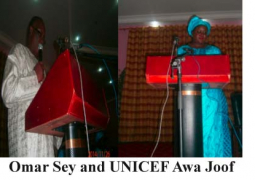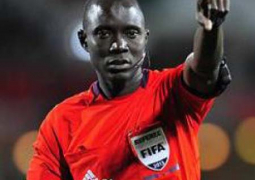The (ECA) - Gender experts, Civil Society Organizations and governments representatives were urged to commit themselves to action towards equality and empowerment of African women.
"It is high time for Africa to depart from this unproductive rule of doing business as usual," said Mrs. Lalla Ben Barka, Deputy Executive Secretary of the United Nations Economic Commission for Africa (ECA). "Indeed, the time to revisit our habits and actions is now because women are still bearing the brunt of all types of shortcomings, crises, wars and conflicts."
Mrs. Ben Barka was speaking at the opening session of the 8th Regional Conference on Women (Beijing +15) which is taking place in Banjul, The Gambia. The week-long conference will take stock of progress achieved in Africa since the Beijing Summit on Women fifteen years ago, and identify pending challenges for the implementation of the 12 critical areas of the Beijing Platform for Action. More than 600 participants from 43 different countries are attending.
Mrs. Julia Dolly Joyner, Commissioner for Political Affairs of the African Union Commission welcomed the opportunity for this collective stock take. She said it is good to determine "where we are and what needs to be done to further the process of gender equality and women's empowerment in the Continent."
Ms. Chinwe Dike, UN Resident Coordinator and Resident Representative of the UN Development Programme (UNDP) in The Gambia, said that in order for women to achieve, men needed to be part of the participation. "The stake men have in women's development just as much as women do," she said.
"Women's well-being often cannot improve without including men because gender is relational," she added.
Mrs. Fatou Jassey-Kuyateh, Permanent Secretary of the Office of The Gambian Vice President, said Africa's women needed to ask themselves what they had been doing to advance their cause. She focused on how The Gambia has taken on a great many of the commitments from the Beijing Platform of Action with many more women serving in office as a result.
"As you can see both the Vice President and Speaker of the National Assembly, three ministers, one deputy minister and three other National Assembly members...are women," she said. "In the past women were not contesting for elections, but now we started seeing some brave women contesting elections at the levels of area councils and parliament."
The conference was also briefed on the restructuring of the ECA's Committee of Women and Development (CWD). The CWD will serve as an advisory forum of experts and policy makers providing guidance to the Commission's work on gender equality, women's empowerment and the advancement of women. The Committee is composed of senior experts from ECA's member states.
Dr. Monique Rakotomalala, Director of ECA's African Centre for Gender and Social Development (ACGS), presented the new structure and an ACGS representative reported on the process accomplished in 2008-2009. These accomplishments focused on gender mainstreaming, poverty reduction and improved ability for member states to implement and monitor regional and global resolutions.
For 2010-2011, the Centre will have an increased focus on gender-based research and analytical work as well as on technical cooperation activities to support policymaking and promote gender equality and women's empowerment.
The Beijing+15 conference continues all this week, with a ministerial meeting starting on Thursday, 18 November and the launch of UNECA's first African Women's Report (AWR) on Friday, 19 November




